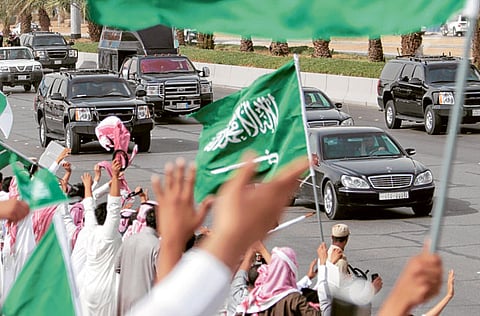Saudi reformers call for change
Group signs an open Letter to the King

Riyadh Saudi Arabia's King Abdullah landed in Riyadh yesterday ending a three-month absence. King Abdullah Bin Abdul Aziz who spent three months in Casablanca recovering from back surgery, will find a nation seemingly moored in the eye of the epic storm howling around it. More than ever before, Saudis are openly calling for change, including political reforms. The most vociferous are tech-savvy youths who have obsessively followed their peers' historic movements, especially in Egypt, on Twitter and Facebook.
True, King Abdullah — is genuinely liked by most of his subjects. And the government is shielded by a religious culture in which rebellion is deemed illicit and public street protest considered gauche.
Virtual Tahrir Square
But those agitating for change have made the internet their virtual Tahrir Square, with locations like #EgyEffectSA on Twitter acting as a public forum for how they see Egypt affecting Saudi Arabia. In a move timed to the king's return, a group of 40 young Saudis, mostly journalists and rights activists, have signed an open "Letter to the King."
The signers say they were inspired by Arab youth elsewhere, and by the king's encouragement of national dialogue. They asked for elections for the advisory Shura Council, the right of women to vote and run as candidates, strong anti-corruption measures, and greater fiscal transparency and accountability.
In addition, they want the Cabinet reshuffled so that ministers' average age, now 65, is reduced to 40.
In another effort — albeit one that did not get very far — 10 moderate Islamists, including university professors and lawyers, defied the ban on political parties and announced they were forming the Islamic Umma Party.



